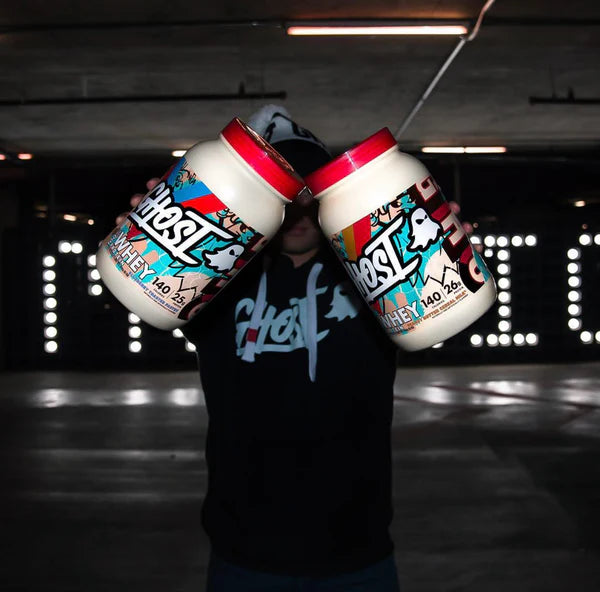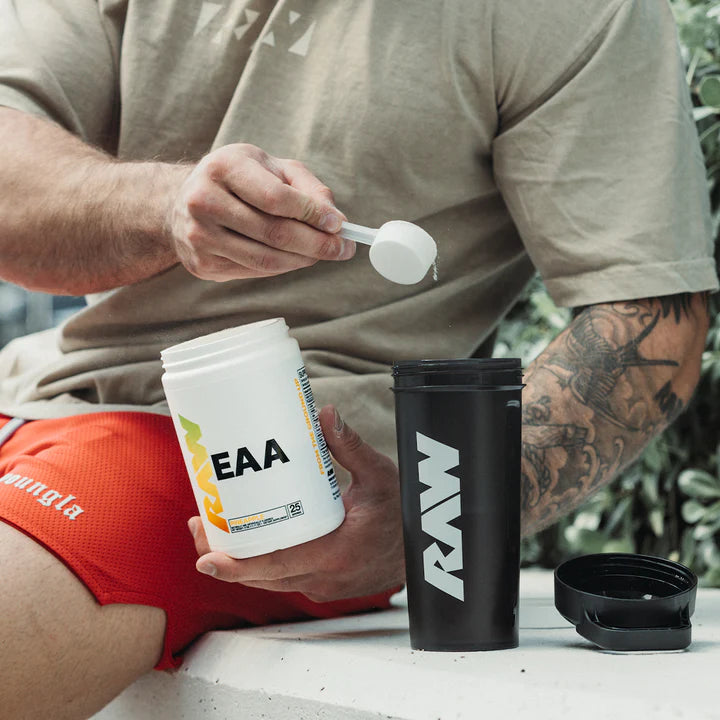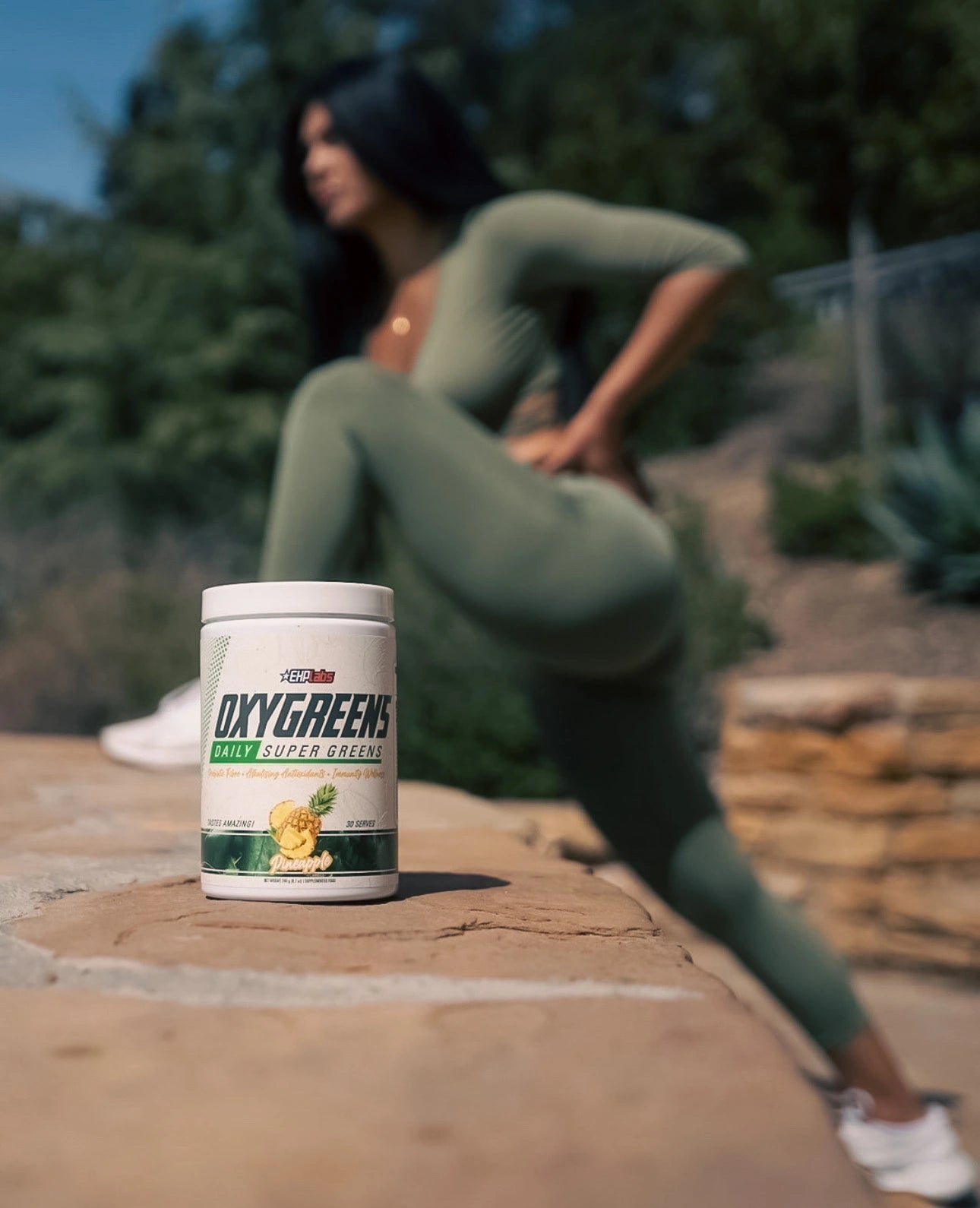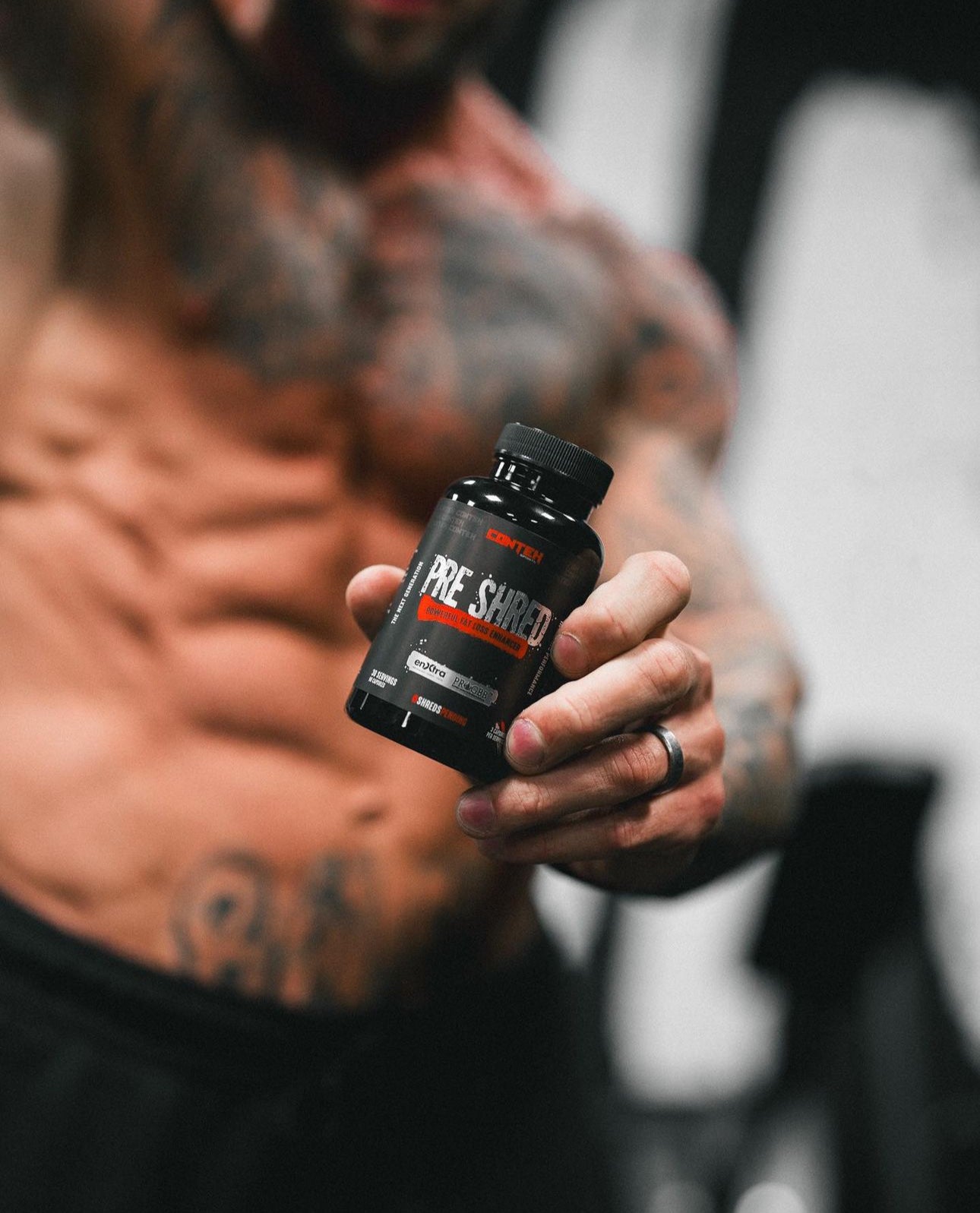The Ultimate Creatine Guide
What is creatine?
Put simply, creatine is a compound that supplies energy to your muscles. It is made by the human body, and also found in some foods – primarily fresh meat. Creatine is produced in the liver, pancreas, and kidneys, and is transported to the body's muscles through the bloodstream. Once it reaches the muscles, it is converted into phosphocreatine (creatine phosphate). This highpowered metabolite is used to regenerate the muscles' ultimate energy source, ATP. When you workout, your ATP levels drop rapidly. Creatine is responsible for restoring ATP levels.
Creatine and athletic performance
Over the last two decades, creatine has emerged as the king of all athletic performance supplements. And with good reason. Creatine intake heightens your body’s creatine phosphate energy system. This allows you to push yourself for longer periods of time, with more energy. Creatine also improves your ability to tap into explosive energy when you need it as critical times in your training. It should also be noted that in clinical studies, creatine has been shown to increase strength and lean muscle mass.
Creatine food sources
Though creatine is naturally manufactured in the human body from amino acids, half of all stored creatine comes from the foods we eat. Creatine is primarily found within fresh meats. Beef, pork, salmon and tuna are exceptionally rich in creatine, containing 2 grams of creatine per pound of meat. Herring contains an amazing 3 to 4 grams of creatine per pound of meat. Cranberries are also relatively rich in creatine.
Creatine is very heat sensitive. During cooking preparation, a good portion of a meat’s natural creatine levels are destroyed.
Anabolic effects of Creatine
The term anabolic is associated with improvements in lean muscle mass. Creatine supplementation works on several different levels to improve lean muscle mass.
Training performance and creatine
Because creatine allows you to train longer and harder, with the ability to squeeze out more reps, the intensity of your training is heightened. This heightening of intensity forces your body to adapt and grow, more so then without creatine supplementation.
Creatine and cell growth
We’ve touched upon the subject of cell methylation, and seen that creatine is essential for good health and proper cell growth. A diet that limits the consumption of fresh meat is a diet that is ill- suited for new muscle cell growth. This reality adds another dimension to the daily protein requirement for athletes and bodybuilders. Not only do you need extra protein for amino acids and raw materials, but the creatine derived from fresh meat sources also insures that the cells are strong and healthy.
Creatine and muscle volumisation
Muscle volumisation is, without a doubt, the most talked about form of creatine anabolism. Creatine supplementation causes muscle cells to swell with water. This swelling leads to better muscle feel – or pumps. In turn, muscle swelling also encourages the cell to increase production of vital structural and enzymatic proteins. Simply put, not only does creatine enlarge a cell, but it also strengthens a cell. This volumisation of muscle cells leads to an overall increase in lean muscle mass.
Creatine supplementation also boosts muscle growth and repair by:
-
Working as an antioxidant, creatine works to remove harmful free radicals, strengthening muscle cell membranes, and allowing muscle cells to repair and grow more efficiently.
-
Creatine works to buffer muscle acidity. Without proper PH balance, a muscle will fatigue more easily.
-
Creatine assists in regulating proper calcium levels within muscle tissue, which allows for proper contractions. Low levels of creatine can cause calcium imbalance, and a resulting decrease in performance.

Benefits of using creatine supplements
We have already taken a close look at the anabolic and health benefits of creating. Here is a closer look at the primary benefits from creatine supplementation.
- Extra Energy. Creatine supplementation boosts energy, allowing you to train or compete harder, longer, and dig deep when you need a big burst of energy. When you need quick energy, your body relies on a compound called ATP (adenosine tri-phosphate). ATP stores quickly burnout, and are typically exhausted after 10 to 15 seconds. Creatine works to help restore ATP stores, preparing you to work hard again.
- Protein Synthesis. A recent study revealed that creatine supplementation stimulates muscle specific protein synthesis.
- Muscle Volume. Creatine supplementation volumizes muscles, which in turn strengthens muscles cells. With a greater muscular volume, you are generally stronger, and will carry more lean muscle mass.
-
Lactic Acid. Creatine works as a lactic acid buffer, delaying muscle fatigue, and allowing you to work longer into sets, or harder on the playing field.
Who uses creatine supplements?
Though creatine supplements are most popular with strength athletes and bodybuilders, they are actually perfect for anyone that is physically active. Creatine has been shown to boost endurance, strength and muscle mass. Creatine provides an edge when you need to dig deep, and gives you a burst of energy when you are late in the game or pushing for a personal record.
Creatine also has numerous health benefits. It strengthens muscle cells, helps combat disease, improves mental functioning, and much more. Creatine is also a must have supplement for vegetarians who don’t derive creatine from fresh meat sources.
Bodybuilders. Bodybuilders use creatine to increase lean muscle mass, and for extra energy and strength.
Powerlifters. Powerlifters use creatine to help endure intense workouts, and for the strength gains that it provides.
Endurance Athletes. Runners, bikers, and other endurance athletes use creatine to amplify their training sessions, and for its ability to help them dig deep when they need a quick burst of energy.
Team Sports. Athletes involved in team sports rely on creatine for extra strength, and for energy when the game is on the line.
Body Transformation. Creatine isn’t just for hardcore athletes. It is a staple supplement, used by many individuals who are turning their lives around, and getting back into shape. Creatine helps them get stronger, and perform better. Also, the added muscle mass from creatine allows them to burn more fat.
Vegetarians. Vegetarians supplement with creatine for good health. As we’ve explored, creatine deficiency can lead to numerous health problems.
When to take creatine supplements
There is no evidence supporting a best time to take creatine. Pre or post workout is usually most convenient for users.
Learn more
If you’re confused about the best supplements for you, please contact us at thesuppshouse@gmail.com and our expert team will be more than happy to help.








